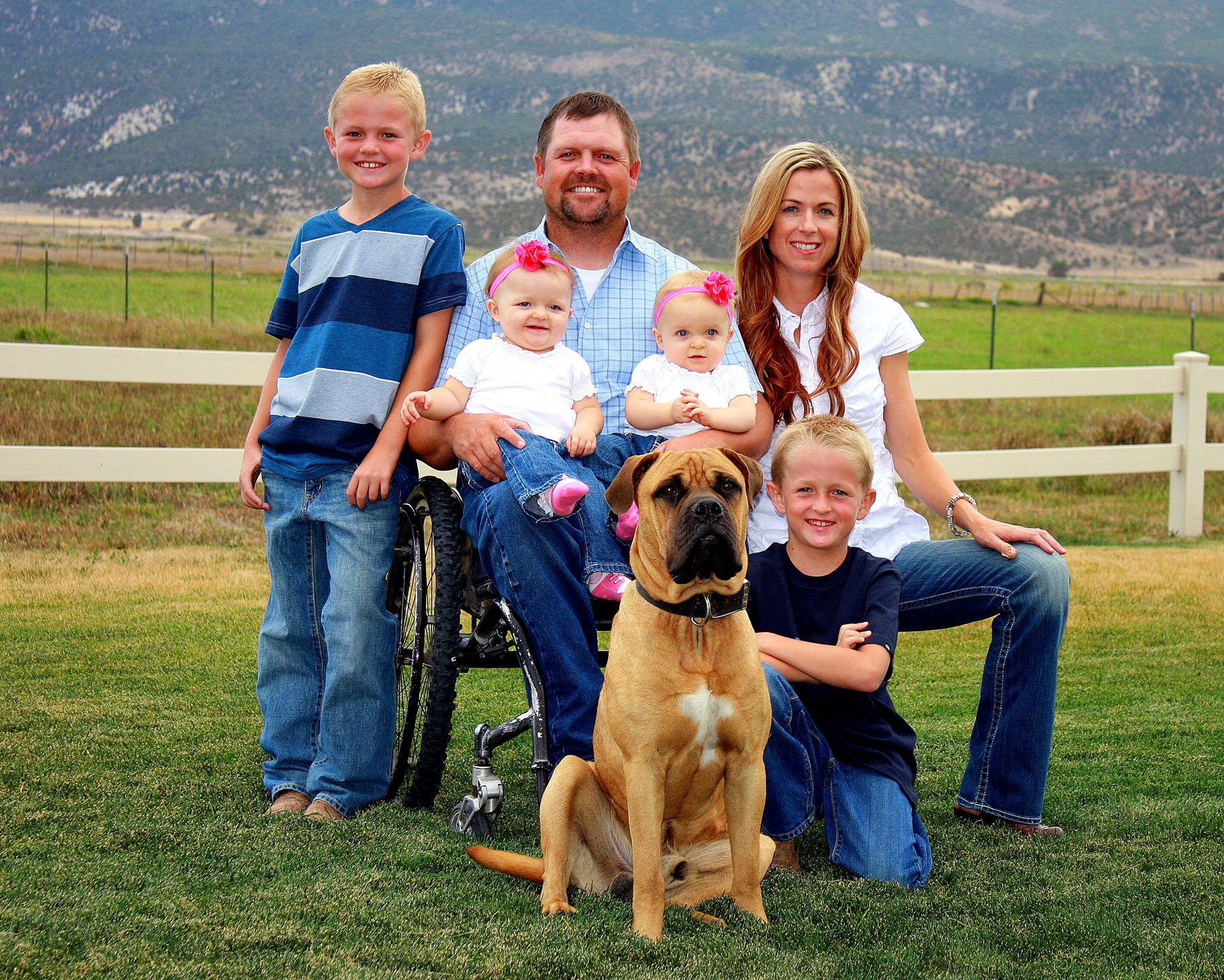
Tyler Hunter and his wife Ruby moved their two sons and twin daughters to Ephriam, Utah, to start life on a ranch.
By Tanya Brown, Farm Service Agency
In the fall of 2005, Tyler Hunter packed up his wife and two sons and moved to Ephraim, Utah, to pursue a full-time career in ranching. “This may not seem like a huge endeavor; however, our circumstances were rather unique,” said Hunter.
A few months before the move, Hunter, who owned a construction company at the time, was building his family a home on a plot of land he purchased in Ephraim. While putting up the last piece of fascia on the bottom side of the roof, he slipped off the scaffolding and suffered a spinal cord injury that left him paralyzed from the waist down. Soon after, his father died in a horse accident.
“I ranched with my father for most of my life. Not only was he my best friend but also my mentor,” said Hunter. Ranching was never a full-time endeavor for the pair, but something they shared together.
Hemmed to a wheelchair and mourning the loss of his father, Hunter said he couldn’t give up. “Moving to Ephraim was the beginning of a new chapter in our lives. My father’s love of ranching motivated me to survive and give my wife and kids a good life,” he said.
But that new chapter came with many challenges, changes and a learning curve.
The challenge was financing. The Hunter family began with a small ranching operation, but quickly found out they needed to expand.
“We met Travis Cartright from the FSA office not long after we settled in. My wife and I had a chance to purchase some additional ground that would work well with our program,” said Hunter. “The Farm Service Agency seemed like an appropriate option for financing. We had never used them before but were well aware of their great reputation.”
For Cartright, the first meeting with Hunter was an experience he will always remember.
“He wheeled into my office and I had to rearrange my chairs to accommodate him,” said Cartright, farm loan officer in the Manti, Utah office. “He was full of energy and ideas. I could tell right off that he had a real enthusiasm for ranching.”
They both left the meeting exhilarated and excited. Hunter left with an application in his hand and all the information he needed to complete and return the package.
Then time passed.
Several days went by and Hunter had not yet returned to the FSA office with his application. Another few weeks passed and still no Hunter and no completed application.
“I never heard from him for several weeks, so I placed a call and found out that he had been in the hospital going through a series of surgeries,” said Cartright. “Once he got out he called me.”
Cartright traveled to Hunter’s home and sat in his front room where he lay recovering in a hospital bed and put together a farm business plan. “Over a series of meetings he developed a plan that we both felt comfortable with and that would help him expand his small operation.”
Over the past six years, Hunter has received term and annual operating loans from FSA to help expand his operation. He still has a real estate loan with FSA, but last year he was able to graduate his operating loan to commercial credit.
With that expansion also came some changes. Hunter said he is used to being hands-on and doing the work himself. Now he has a tractor with a lift that allows him to do some field work. He obtained information from AgrAbility, a non-profit organization that helps disabled producer, on how to get self-closing gates and how to have alterations made to his tractor and vehicles so he can drive them and perform work with hand controls.
“The work I do has to be done from my wheelchair. I had to learn to delegate and do more managing instead of doing things myself,” he said. Yet, he is grateful for all of the help he has received. “As a young ranching family, financial burdens can be great. Regular bank loans can be rigid and much less accommodating. The Farm Service Agency fully supported us and because of that they have been an important part of our success.”






One Response to Disabled Utah Rancher Utilizes FSA to Give Family a Good Life